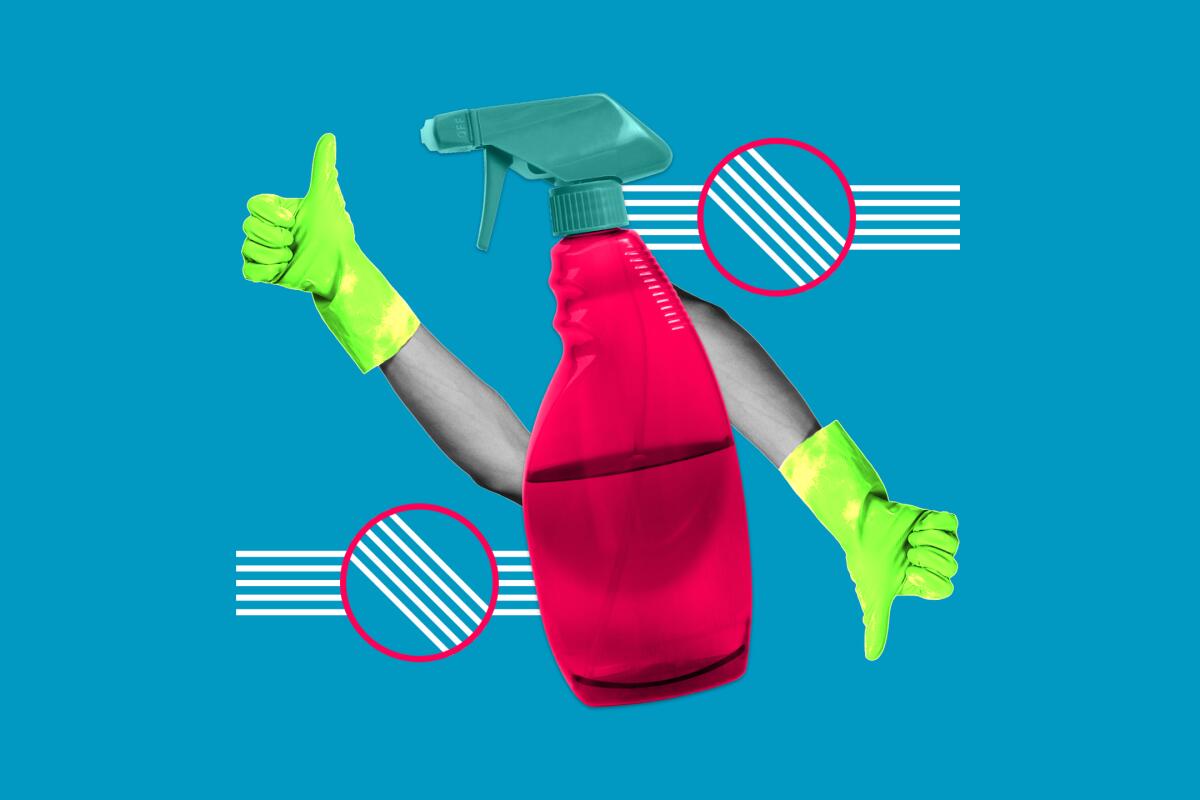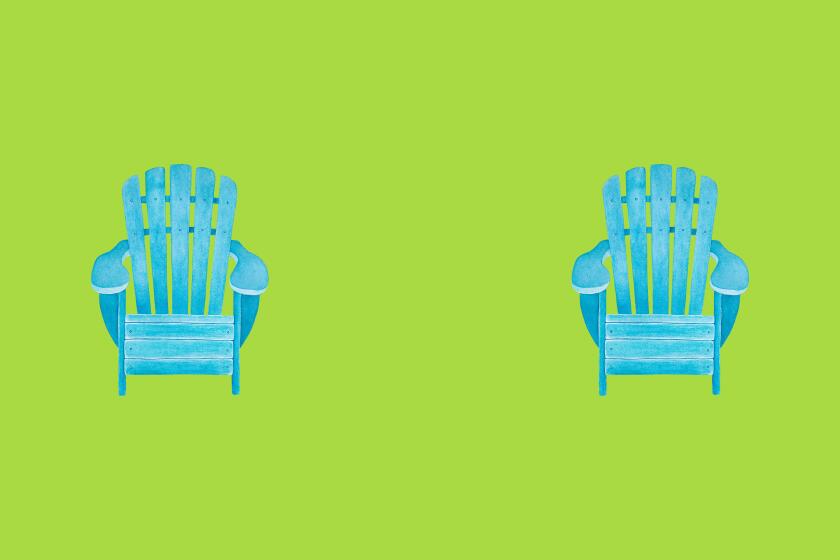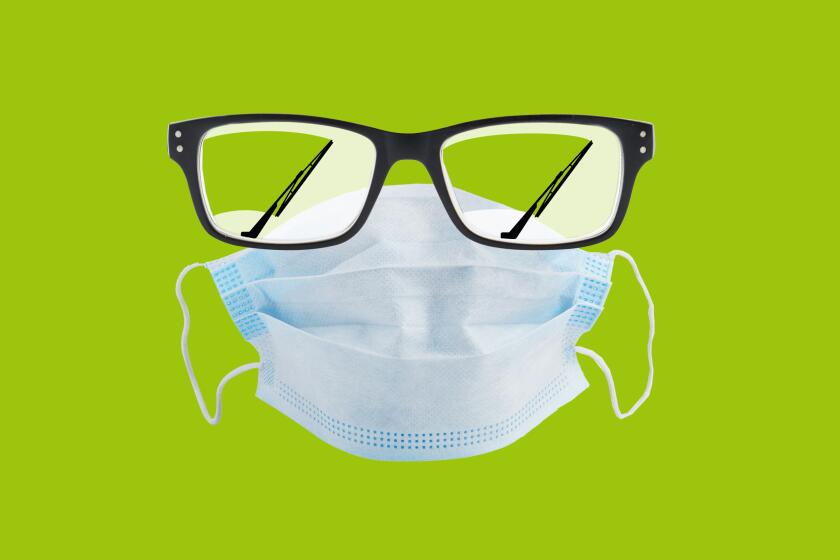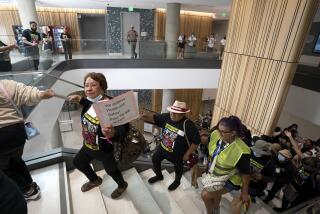‘When and how can my housekeeper return?’ Experts explain how to calculate the risk

You’ve been hunkering down at home in isolation for months, and the days are starting to run together. After weeks of around-the-clock cooking, cleaning and parenting, it’s not surprising that when we asked readers to send us their most pressing questions regarding the coronavirus, an overwhelming number of you wanted to know, “When is it safe for my housekeeper to return?”
Everyone is understandably tired of scrubbing their own toilets and the endless dirty dishes. But it’s about more than just cleaning. Many people have maintained a decades-long relationship with their housekeepers. Keeping housekeepers at a distance can feel like turning away a trusted friend or family member.
When stay-at-home orders were put in place in March, many housekeepers were told to stay home, some with pay and others without. Meanwhile, the orders have hit domestic workers, many of whom don’t have access to healthcare and paid sick days, particularly hard. Many are eager to get back to work.
If we’ve learned one thing while sheltering in place, it’s that it’s difficult to do everything alone. But as counties start to reopen — with some health officials concerned by the fast pace of lifting stay-at-home restrictions — how do we know that the people who come into our homes are not symptom-free silent spreaders? Just as important: As states move to reopen, is it safe for them to return to housekeeping?
If beaches and businesses are reopening, does that mean I can visit my friends and family now? The new rules on socializing during social distancing.
The short answer is that there are no hard and fast answers. The “right time” depends on each person’s risk tolerance.
Many cleaning services, such as Merry Maids, Tidy and Handy are open and are employing protective measures. Tidy, for instance, now requires temperature checks of cleaners prior to cleanings, as well as masks, safety certification and contactless cleanings.
“If your house cleaner wears a mask and gloves and can maintain social distance with the residents of your home, it would seem to be relatively safe if you live in an area with low community spread,” said Summer Johnson McGee, dean of the School of Health Sciences at the University of New Haven in West Haven, Conn. “My fear is that household workers who travel from home to home, who don’t take adequate precautions, become a petri dish and are spreading illness to others.”
In other words, it’s best to wait for phased reopening guidance in your community.
“If you can delay having someone clean your house until the virus is better under control, I would do so,” McGee said. “As much as we all love a clean house, it isn’t worth the risk to your family unless key precautions and public health measures can be put in place.”
With the easing of stay-at-home rules, that time may come sooner rather than later. The experts we consulted realize that many homeowners will ask their housekeepers to return before there is a vaccine. Here are the things you need to know to calculate the risk.Understand how the virus spreads
Details on the coronavirus are continuously evolving, but experts agree that respiratory viruses spread through droplets that enter the nose or mouth to cause infection.
Teens are experiencing grief as they miss out on milestones such as prom and graduation because of COVID-19. Here are some things parents can do to help.
“Respiratory viruses are particularly dramatic,” said Paula Cannon, a professor of molecular microbiology and immunology at the Keck School of Medicine at USC. “Even just speaking can create a mist of droplets around you. I tell people, ‘Every time you speak, imagine blue mist coming out of your mouth.’ Think about how to dissipate or avoid respiratory droplets; the hierarchy of controls [staying home, social distancing, washing your hands and not touching your face] is common sense.”
When housekeepers enter your home, the key, Cannon said, is to reduce the chance of fresh respiratory droplets getting into your nose and mouth. “That’s the foundation in thinking this through,” Cannon said. “If you are outdoors and you are talking, your respiratory droplets have a larger area to dilute. This is why social distancing is so important: not being in the immediate space where another person is or was 10 seconds ago, or even walking six feet behind someone in a house. I would not do that.”Make a plan before they arrive
Cannon suggests talking to the cleaner or cleaning service in advance and leaving clear instructions before the housekeeper arrives. Set expectations for social distancing, mask and glove usage and any issues before cleaning begins.
“Ideally it’s someone you have used before,” Cannon said. “I would look at my house and plan what I want them to do and reduce what surfaces they can touch. Touching surfaces is not as critical as breathing, but even so, I would minimize the surfaces that my cleaner can touch. I would also open all the windows and doors before they come.”
As a safety precaution, have the housekeeper call or text you from the street when they arrive, and after you open the door, let them know that you will be outdoors while they are cleaning. Communicate safety protocol in advance
If your house cleaner works for a company or agency, it is important to research the company’s health and safety protocols, McGee said, and know what it is doing to keep their clients and workers safe and healthy.
“These companies should be doing symptom checks and requiring periodic testing and more for people going into other people’s homes,” McGee said.
If your cleaning person works freelance, have a conversation about whether they have been tested recently, if they have any symptoms and if they are feeling OK before they clean your house, McGee said.What can I do to protect myself and my housekeeper?
The risk of infection can be mitigated or minimized if you are not at home while the housekeeper is inside your home.
Cannon suggests “sitting in the garden” and insisting on face masks. “If you wear a mask, your respiratory droplets are greatly reduced,” she said. “Is it 100%? No. You would suffocate if it was. But it is stopping large amounts of droplets. And if you are wearing a mask, you are also protected. Droplets will land on the outside of your mask.”
Suellen Hopfer, a professor of population health and disease prevention at UC Irvine, agrees that it is best to stay outdoors while the housekeeper is present. The less interaction the better. Also, if the house cleaner is going to be in your home for several hours, Hopfer recommends having them eat lunch in their car as opposed to inside the home.
Wearing masks will help minimize the spread of COVID-19. Here’s how to do it right.
If you do use a cleaning service, Cannon recommends using one housekeeper at a time, rather than hiring people who work in pairs or groups.
If you are still nervous about infection, simply clean after your cleaner. Don’t worry about soft porous surfaces such as sofas, where the virus really won’t last, Cannon said. And if it makes you feel better, place brown bags or newspaper over doorknobs, stair railings and cabinet knobs, and after the housekeeper has left, wipe them down with Lysol wipes or dish soap. Consider time
No one is certain how long the virus lasts, Cannon said, but if you are concerned about infection, avoid rooms that you don’t need to access for 24 to 48 hours.
“If you have two bathrooms, have one cleaned and keep using the other one,” she said. “Don’t go into the cleaned bathroom for 48 hours and then clean the other one yourself.”
Cannon added that the novel coronavirus is not super resilient. “Even if someone was in your house and had COVID-19, it won’t last long. The reality is the virus is going to live for much shorter periods of time, in terms of doses that will be infectious. If I have anyone in my house who is spraying Lysol, that is the best type of person to have. They are built-in COVID decontaminators.”
More to Read
Sign up for The Wild
We’ll help you find the best places to hike, bike and run, as well as the perfect silent spots for meditation and yoga.
You may occasionally receive promotional content from the Los Angeles Times.













